Your kids’ happiness and health are everything. However, school, sports, friends, and hectic schedules might make it hard to acquire enough nutrients.
One trick to maintain their expanding bodies? Probiotics. You may have heard about good bugs that boost gut health and immunity, but did you realize some are especially beneficial for kids?
Choose a probiotic with live microorganisms that can survive your kids’ intestines. This article discusses the best probiotics for kids and how to include them in their daily routines. Be ready to learn easy tips to help your kids succeed!
In This Article
Why Probiotics Are Important for Kids
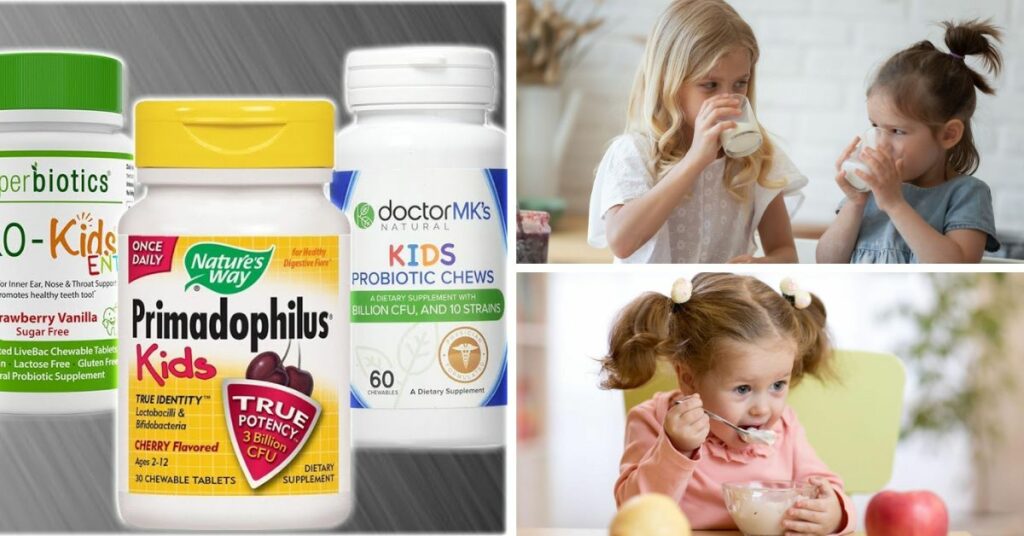
Good bacteria, like the best probiotic for kids, can improve your child’s health and development. Top reasons to give kids probiotics:
Develops gastrointestinal health. In the gut microbiome, probiotics balance beneficial bacteria. Infants’ rapidly evolving intestinal flora makes this crucial. Babies can avoid colic, acid reflux, and constipation with probiotics. Probiotics assist digestion, regularity, and gut health in kids of all ages.
Immune booster. The gut contains much of the immune system. Probiotics protect the intestinal barrier and immune cells. Kids can get sick less often and recover quicker with this. According to research, probiotics may lower childhood colds, flu, and other respiratory illnesses.
Enhances mood and behavior. The gut-brain axis exists. In particular, in children, probiotics may improve the gut-brain axis and lessen anxiety, sadness, ADHD, and autism spectrum disorder. Probiotics may aid as a natural supplement.
Provides nourishment. Probiotics help youngsters absorb vitamin K, folate, and B vitamins. This aids metabolism, cell development, and bone health. Some of the best probiotic for kids generate trace levels of B vitamins, including vitamin K.
Anti-inflammatory. Many health disorders are connected to chronic low-grade inflammation. Anti-inflammatory probiotics may reduce gut and systemic inflammation. This can help youngsters with asthma, allergies, and eczema.
Probiotics are safe for most youngsters and can improve health and development for life. Discuss the optimal probiotic product and dose for your child’s requirements with your pediatrician. Probiotics, a balanced diet, and exercise can help your kids stay healthy.
Top 5 Evidence-Based Benefits of best probiotic for kids
Living bacteria and yeasts are probiotics for your child’s digestion. Here are the top probiotic benefits for kids:
Improves Gut Health
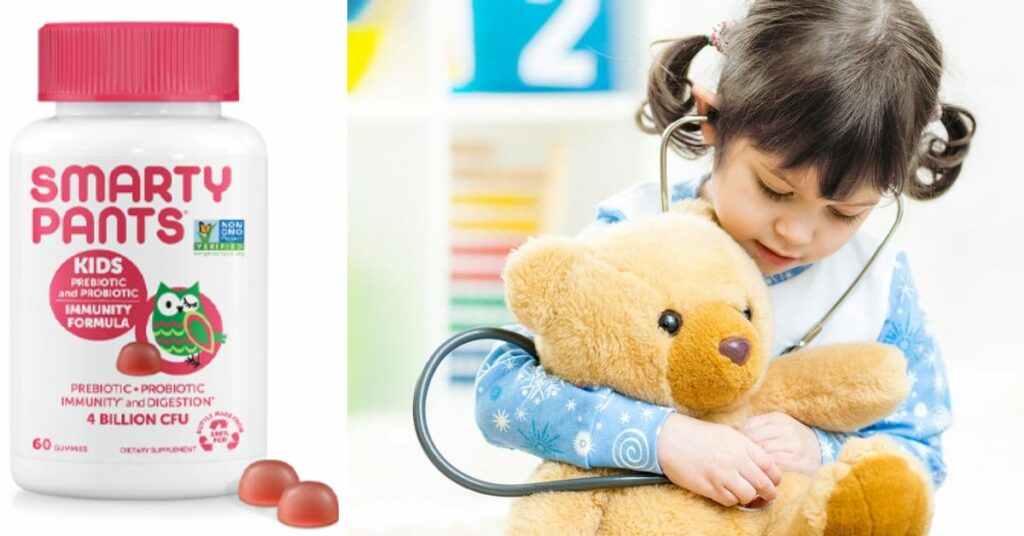
Probiotics maintain the gut microbiota, a balance of healthy bacteria. Digestion, nutrition absorption, and immunity depend on a healthy gut flora. Probiotics can treat gas, bloating, constipation, and diarrhea.
Boosts Immunity
Guts include much of the immune system. The best probiotic for kids boosts gut immunity and gut barrier strength. This can boost your child’s natural defenses and minimize bacterial illnesses. Studies suggest probiotics may lower childhood colds and flu.
Relief from Allergies
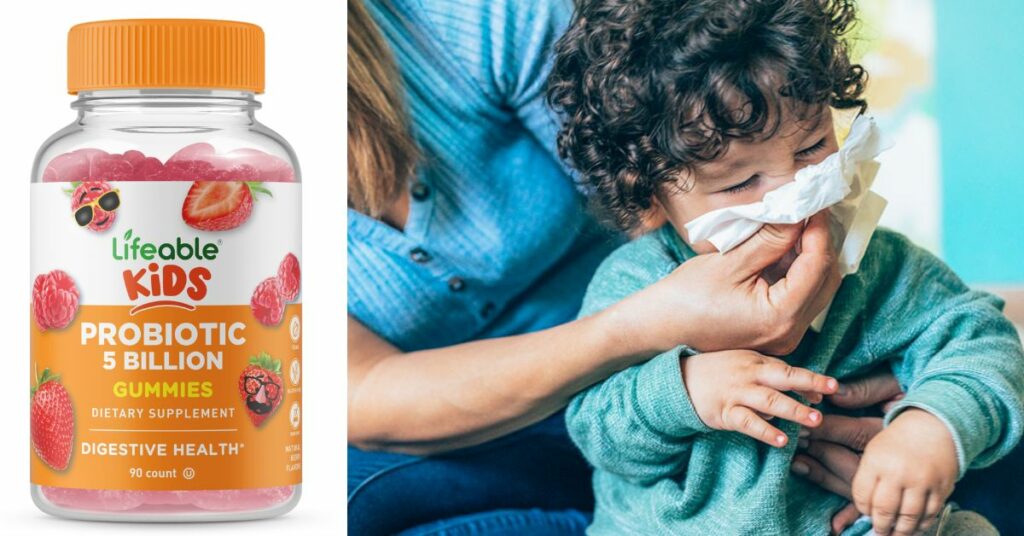
Probiotics may help immune system homeostasis and intestinal inflammation. This can relieve children’s nasal congestion, sneezing, and rashes. Children with eczema or seasonal allergies may benefit from probiotics.
Mood and behavior improve
Closely linked are the stomach and brain. Probiotics promote the gut-brain axis, improving children’s mood and behavior. The best probiotic for kids may lower anxiety, tension, and autism spectrum disorder symptoms in children, according to studies.
Promotes Growth
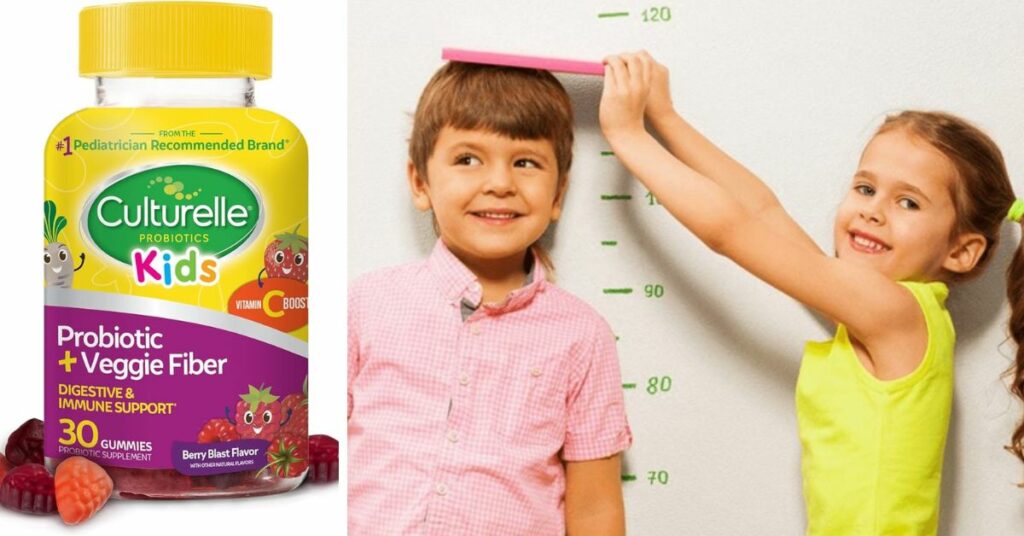
Probiotics help kids absorb all the nutrients they need from their meals for healthy growth and development. Children may absorb more calcium, iron, and zinc with probiotics.
Probiotics enhance your child’s health in various ways. Look for a child-specific probiotic with many strains of beneficial bacteria, notably Lactobacillus and Bifidobacterium. Always follow your child’s age-appropriate dose.
Factors to Consider When Choosing a Best Probiotic for Kids
Consider these factors when choosing a probiotic for your child. Considering bacteria strains, CFUs, and kid-friendly distribution methods is crucial.
Look for a child-friendly probiotic with Lactobacillus and Bifidobacterium strains, two of the best-studied genera. L. rhamnosus and B. infantis assist kids’ digestive and immunity systems. Depending on age, most children choose a product with 5–10 billion CFUs per serving. More CFUs suggest more beneficial bacteria but start low and increase steadily.
Consider your child’s age and pill-swallowing abilities before picking a delivery strategy. For youngsters, use powdered, chewable, or gummy probiotics. Tablets or capsules may be helpful for older kids and teenagers. Follow your child’s age-appropriate dose regardless of your choice.
Labeling and storage are important. A product designated “for kids” or “children’s formula” should disclose the probiotic strains and CFUs. Avoid shelf-sitting probiotics since they need refrigeration.
Start your child on a modest probiotic dose and gradually increase to the suggested quantity over a week or two. This will reduce gas and bloating as their body adjusts. You can pulse probiotics 3-4 times weekly, but most youngsters benefit from regular use.
The best probiotic for kids improves health and development. Choose a high-quality, kid-friendly product to promote digestion, immunity, and general health. Before giving your child a probiotic or supplement, consult your pediatrician.
The Best Probiotic Strains for Children
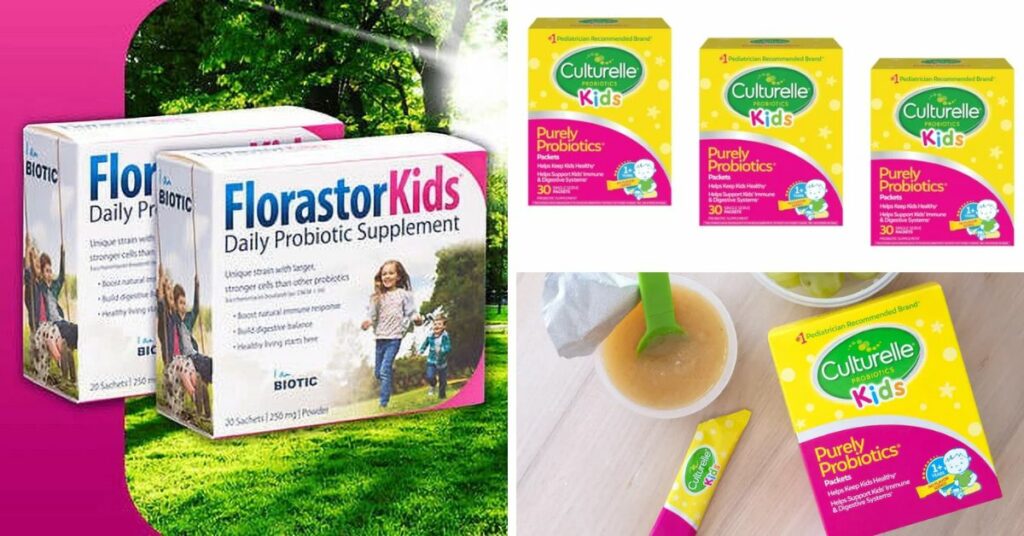
Certain probiotic strains are suitable for youngsters, so choose wisely. The best probiotic for kids include:
Lactobacillus rhamnosus GG (LGG): A researched probiotic strain for youngsters. Eczema, diarrhea, and colic can be reduced. Kids’ probiotics like Culturelle include LGG.
Bifidobacterium infantis: Maintains a baby’s gut’s natural balance of healthy bacteria. Infants benefit from colic, gas, and constipation relief. Many baby probiotics contain B. infantis.
Saccharomyces boulardii: A yeast-based probiotic that reduces diarrhea in children from antibiotics or gastrointestinal illnesses. It is safe for children and is found in Florida.
Lactobacillus acidophilus: Lactobacillus acidophilus, a common strain, supports gut health and the immune system in youngsters. It may lessen colds, allergies, and digestion. Many kids’ probiotics contain L. acidophilus.
Bifidobacterium lactis: This strain of Bifidobacterium lactis improves intestinal health in children aged 6 months to 4 years. Gas, constipation, and colic can be reduced. Gerber Soothe and Culturelle Baby Grow + Thrive include B. lactis.
The best probiotic for kids should have several child-friendly strains and at least 1-2 billion CFUs each meal. Find a powder that can be incorporated into food, a chewable tablet, or a gummy made for children with kid-approved packaging and delivery. When given the right dose, probiotics are safe for newborns, but consult your pediatrician.
Probiotic Forms: Capsules vs Powders vs Gummies
There are several ways to distribute the best probiotic for kids. Each has perks and downsides, so choose based on your child’s needs and preferences.
Capsules
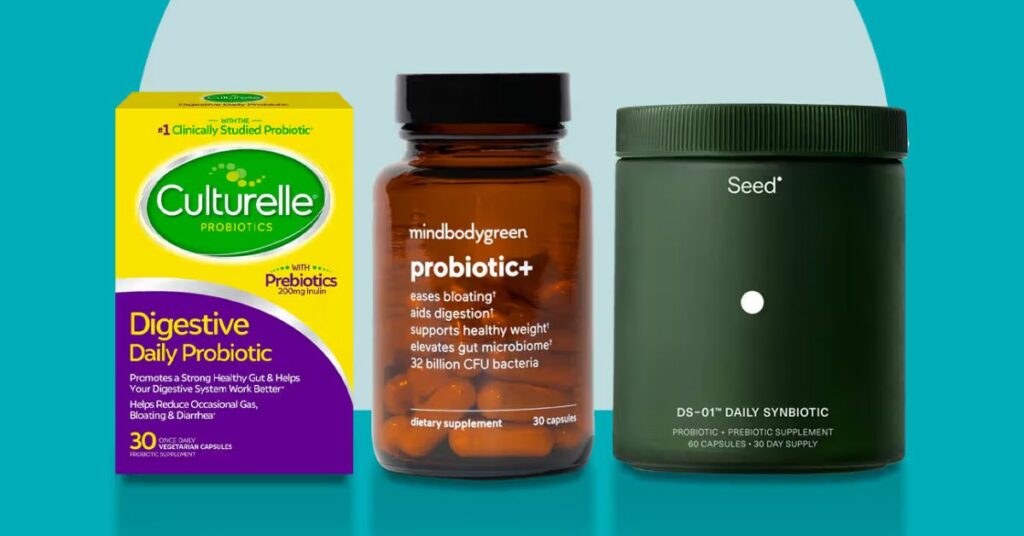
Live bacteria are enclosed in probiotic pills. They are handy yet hard for some youngsters to swallow. Open the capsules and mix the powder with yogurt, muesli, or drink to make it easier to swallow. The quantity of CFUs in each capsule is usually greater.
- Pros: Convenient, likely to increase CFU numbers.
- Con: Difficult for children to understand.
Powders
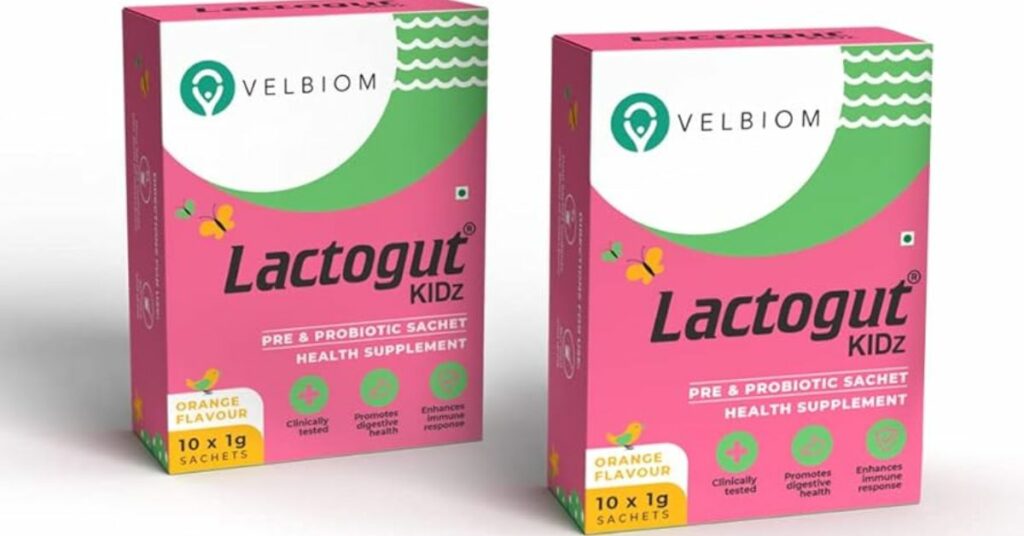
Live probiotics are powdered and added to drinks or soft foods. They go well with yogurt, apple sauce, juice, and smoothies, making them kid-friendly. Powders may have fewer bacteria than capsules. Follow the directions to calculate your child’s age and size dose.
- Pros: Kid-friendly, suitable for food addition.
- Potential drawbacks: lower CFU numbers, messier
Gummies
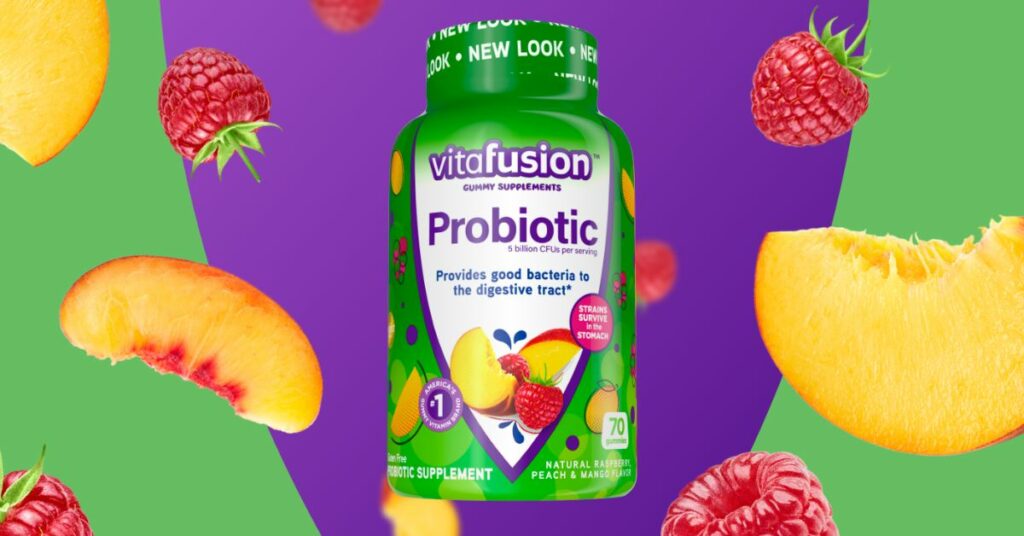
Live microorganisms and natural fruit flavors make probiotic gummies appealing to youngsters. Due to gummy production, they may have fewer bacteria than other types, yet they are the most kid-friendly. Gummies must be chilled to stay potent.
- Pros: Kid-friendly, pleasant natural flavors.
- Cons: Lower CFU counts, requires refrigeration.
What best probiotic for kids’ needs depends on their age, size, tolerance for various forms, and CFU count. It may take many types to find one they will take regularly to get the advantages. Most significant is that it includes living and active cultures and is designed for kids.
Probiotic Dosage for Kids by Age
Kids’ probiotic dose varies in age and size. A general rule:
- Infants (0-12 months): 1-2 billion CFU daily. Find a baby product with Bifidobacterium infantis.
- Toddlers (1-3 years): 2-5 billion CFU daily. Powder or liquid may be easier for toddlers. Lactobacillus rhamnosus and Bifidobacterium longum are popular.
- Preschoolers (3-5 years): 5-10 billion CFU daily. Preschoolers enjoy fun-shaped and flavored chewable pills called gummies. Consider Lactobacillus acidophilus strains in addition to toddler strains.
- School-aged children (5-12 years): 10-15 billion CFU daily. Tablets, capsules, and gummies work for youngsters this age. Choose a kid’s probiotic with Lactobacillus acidophilus, Bifidobacterium longum, and Lactobacillus rhamnosus.
- Teenagers (12-18 years): 15-20 billion CFU daily. Teens can take adult probiotics. Teens like Lactobacillus plantarum, casei, and breve.
Consider whether your best probiotic for kids contains prebiotics like inulin or fructooligosaccharides (FOS), which fuel healthy bacteria. Refrigerated probiotics may be more potent.
Always follow product instructions and consult your child’s doctor, especially if they have underlying illnesses.
Most importantly, pick an age-appropriate probiotic and start with a smaller dose, gradually rising to the suggested quantity. Probiotics can improve kids’ health, growth, and development when given in the proper doses and strains.
As with supplements, more isn’t necessarily better, so stay within your child’s age and size’s suggested dosage.
Tips for Giving Your Child Probiotics
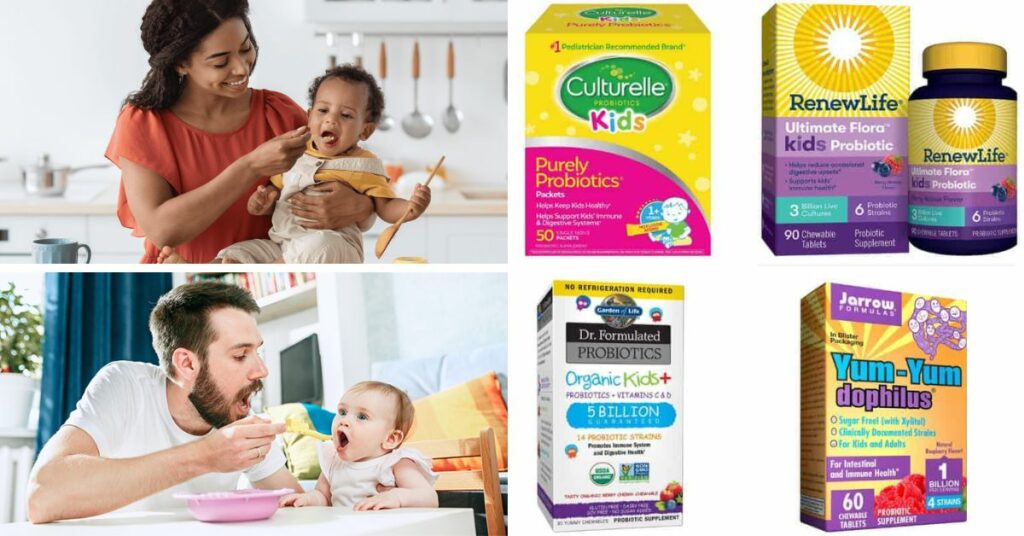
Probiotics improve digestion and immunity in children. Tips for feeding the best probiotic for kids:
Start with a minimal dose. Start with 1/4–1/2 the adult dose for youngsters. You can gradually raise the dosage as their body adjusts. Too much too fast might cause gas or bloating.
Choose a kid-friendly product. Look for powder, liquid, or chewable child-specific probiotics. Kids find them simpler to consume than pills. Strawberry or grape-flavored products may be more accessible for your toddler to swallow.
Mix it with food or drink. Mix powder or liquid probiotics into your child’s favorite yogurt, muesli, juice, or smoothie. This covers the flavor and makes it more enjoyable.
With food. Give your youngster probiotics with food. This may lessen adverse effects and improve beneficial bacteria absorption.
Store well. Keep probiotics cold, dry, and away from heat and moisture. When improperly kept, supplement microorganisms can degrade. Follow product packing instructions.
Watch for side effects. Starting probiotics might cause gas, bloating, cramps, and diarrhea. These should only last a few days while the body adjusts. Severe or week-long side effects require medical attention.
Ask about others. Before giving the best probiotic for kids, ask their doctor about interactions or prior problems. Probiotics may not be acceptable, or the dosage may need to be adjusted.
Consider a trial. Some specialists advocate administering probiotics for a few weeks to see whether your child’s symptoms improve, then pausing for a few weeks before trying again. This determines if probiotics work or if other things are involved. You can then determine if your child should use long-term.
Only supplement when needed. The gut may need more probiotics during sickness or antibiotic usage, but healthy youngsters may only need them sporadically or seasonally. Chronic usage is seldom required or beneficial.
Track modifications. Probiotics may be worth maintaining if your child’s digestion, immunological health, or other problems improve. Expect more regular bowel motions, less stomach distress, and fewer colds and infections.
FAQs:
What are children’s probiotic benefits?
Probiotics support your child’s immune system and digestion with “good” bacteria. Constipation, diarrhea, bloating, and gas can be treated. The best probiotic for kids may reduce cold and flu frequency. Probiotics help babies develop a healthy gut microbiome.
Are kids safe with probiotics?
Most children can safely use probiotics, but consult your pediatrician first, especially for infants. Find a child-specific product without additives. Use a lower dose to let your child’s body adjust, then gradually increase to the recommended amount.
When should kids get probiotics?
The best time to give your child probiotics is with breakfast. Probiotics should be taken on an empty stomach; 30 minutes before or after a meal should work. Mixing probiotic powder or drops with breast milk, formula, or yogurt may make it more appealing to young children.
How long do probiotics work in kids?
Children see probiotic benefits after 3–4 weeks of regular use. Improved digestion or less gas may occur sooner. Constipation can take a month or longer to improve stool regularity. Daily use is essential for probiotics to settle in the gut.
Conclusion:
Your child should have better digestion, fewer stomach issues, and better immunity with regular best probiotic for kids use. Consult their pediatrician if issues persist or worsen.
In a balanced approach to your child’s health, probiotics should not replace medical advice or treatment.
Read Also:







